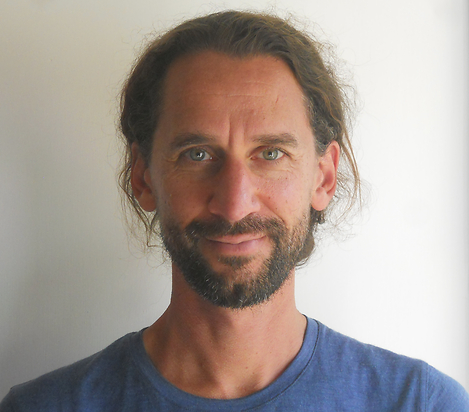Niko Maly
Feldenkrais / Music / Mathematics - Studies in Vienna, Paris and Rome
Teaching
-
at the mdw in the Music Physiology course
-
at the Wiener Musikcollegium
-
as a Feldenkrais practitioner and pianist
-
at TU Vienna and FH Campus Vienna
-
as a university lecturer for mathematics
-
Feldenkrais and music (piano, improvisation and composition) in private practice
Music
-
Solo pianist at the Red Bar of the Vienna Volkstheater
-
Compositions for electronically expanded big band
-
Interactive sound installations (Weltmuseum Wien, international dance performances)
Research
-
Project at the mdw in the field of music physiology, music psychology and sensorimotor learning
-
Spirit, focus and teaching goal: Order from Noise
Self-organization: My lessons at the mdw are based on Feldenkrais work. This involves verbally and manually guided movement lessons that can also be performed on an instrument. The term Order from Noise was chosen by Heinz von Foerster to describe the development of self-organizing systems. According to von Foerster, our personal perception is not a reflection of an objective reality. On the contrary, we create our individual reality through perception and experience. For example, as musicians we hear a composition with different ears after we have rehearsed it. The music appears to remain the same, but we experience it completely differently; we create our aural reality based on our perception and experience.
Perception and instrumental technique: In our lessons we therefore deal with perception (perception of movement, perception of hearing, visual perception) and also with the interaction between perception and conception. In Feldenkrais work, we direct our gaze and hearing inwards and can thus expand our self-perception. We observe whether concepts get in the way of our perception and our self-image. In music there are conventions, for example, about how a composition should sound. This places seemingly objective demands on us musicians. Improved self-awareness offers the opportunity to question concepts (for example those of instrumental technique) and, as a result, to fulfill conventions as individually as possible. We study the many shades of individual instrumental technique and musical expression using videos of well-known female musicians.
Coordination, economy of movement and relaxation: A frequent and pleasant side-effect of Feldenkrais work is improved coordination and economy of movement, a reduction in tension and a relaxed mood. In the often strenuous everyday working life of musicians, Feldenkrais work is therefore a good way to maintain mental and physical health.
Aha: Moshe Feldenkrais, the founder of the work named after him, shared his views on human development with Heinz von Foerster and Heinrich Jacoby, with whom he was also personally acquainted. With Feldenkrais work, we embark on a search for the “aha” experience and develop an inner order where previously there were white spots and white noise. Order from Noise.
Course Niko Maly:

Contact:
email: mail[at]nikomaly.org
Website: nikomaly.org
online course: nikomaly.org/en/courses (nach persönlicher Anmeldung)
